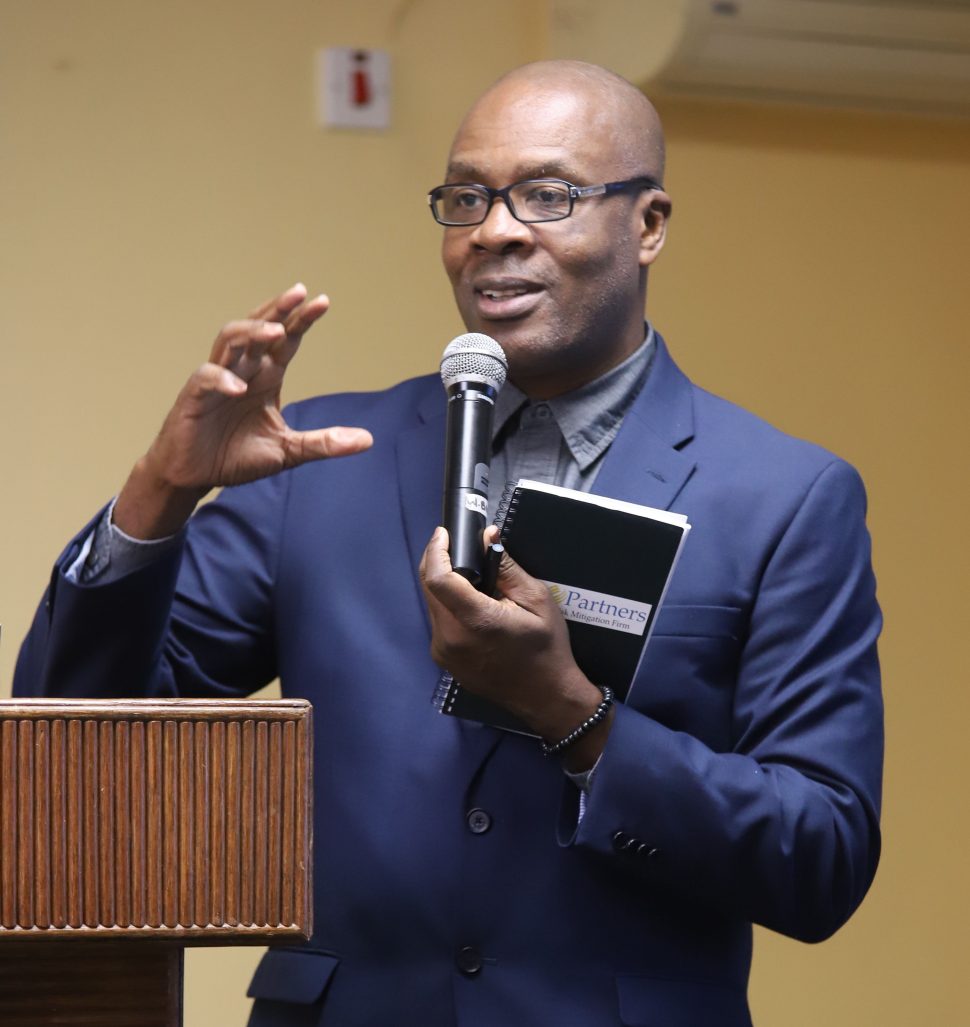There is a need for legislation for dispute resolution, a reliable and predictable legal system and a judiciary that is capable of interpreting complex agreements to manage the oil and gas sector, former Executive Director of the Financial Action Task Force (CFATF) Calvin Wilson said on Saturday.
Wilson was at the time addressing media workers at the first day of a two-day Oil, Gas and Energy Transparency Training workshop that was organised by the Guyana Press Association (GPA) and sponsored by the Open Society Foundation.
He gave a presentation on “Enhancing Oil and Gas Transparency in Developing Nations,” and he said there is a need for the country to have a sound legal system, and if it is not strong then when the time comes for industry contracts to be resolved in court and it is not prepared to deal with them there would be serious problems.
As a result, he said it would be useful for the judges to become familiar with the complexities of oil contracts.
He also pointed that there is a need for accurate knowledge of the national oil and gas reserves through seismic exploration and satellite mapping and that the opposition must also buy-in to the national strategy for the sector through a national consultative mechanism.
Wilson also touched on the ideal scenario for a developing nation with oil and gas and he explained that there is a need for civil servants with technical, legal, commercial, environmental and financial expertise in negotiating and drafting complex legislation and contracts.
He said protecting the best interests of the state, assessing the revenue potential of oilfields and securing the highest levels of revenue through bidding fees, royalties, taxes and profit sharing are also paramount, along with transferring technical knowledge and expertise to locals and protecting the environment.
Also important is the accurate calculation of exploration, development, production, operational and depreciation costs, along with export levels, management of operations, remuneration, involvement of local companies for the supply of equipment and services and contributions to “good causes” nationally.
In terms of enhancing transparency, Wilson said that the FATF recommendations this year noted that high risk countries’ financial institutions should be required to apply enhanced due diligence measures to business relationships and transactions with natural and legal persons along with financial institutions. He also said that countries should be able to apply appropriate countermeasures when called upon to do so by the FATF and they should also be able to apply countermeasures independently of any call by the FATF, and such measures should be effective and proportional to the risks.
Wilson added that since 2000, the region has been beset by ongoing economic and reputational impact of negative listings due to the ongoing compliance deficits and between July 4 and December last year, CARICOM Heads were conducting their own risk assessment.
Wilson said Caribbean integration is now needed more than ever and that greater focus should be placed on advancing areas that would help to create enabling support measures for a competitive single market.
During the two-day workshop, senior journalist Denis Chabrol also made a presentation on cultivating a culture of ethical reporting, while Wesley Gibbings presented on angles on the oil and gas sector, the oil and gas sector as a cross-cutting story and advancing the media’s role in oil and gas coverage.
Curtis Williams, business editor and oil and gas correspondent, also made presentations on reporting on the petroleum sector in the good and the bad times and contemporary storylines in the modern global energy industry.






